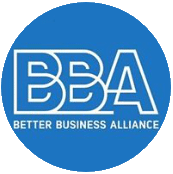Why You Need a Business Plan
A Business Plan is more than than it appears to be, it’s not just something you need if you are looking for business capital. A thoughtfully done business plan provides the blueprint for any companies existence and growth.
Your business plan sets the direction for your company, it guides your internal and external communications, and establishes the metrics for your business performance. Additionally, a business plan ensures that business owners are constantly examining their businesses strengths and weaknesses.
Tips and Traps in Business Plans
Your Business Plan, encompasses the collective knowledge about your industry. It also highlights what opportunities exist to make money within your industry. Let’s examine the 10 key elements of your business plan and why they matter most to both business owners and investors.
Define Your Problem
Your Business Plan must start with explaining the problem that your business is focused on solving. This is not for a description of your company and it’s product or service. Explain this in simple terms that everyone can easily understand.
Establish your “pain cost” in the terms of dollars or time. You need to avoid catch phrases, because they are meaningless and simply undermine your credibility. Keep your focus on the hard facts, necessary to reach decisions.
Solve Your Problem
This is where you explain how your product or service works and why potential customers need your product. Don’t try to give detailed product or service specifications or explanations. You need to be as specific as possible about how and why it benefits your customers. Keep this explanation simple and avoid flowery rhetoric about your product.
Discuss Your Industry
Without writing a book, briefly capture your industries evolution. Discuss the market, highlighting how it is segmented, it’s dynamics and what the landscape is for potential customer base. Use charts and graphs accompanied by hard numbers from knowledgeable sources.
Tell your story briefly and efficiently, be especially focused on explaining the unique benefits you bring to the marketplace.
Explain Your Business Model
This is where you clearly and briefly explain how your business will make money. Keep it simple telling who will be your paying customers. Explain how much your business will be able to keep after your expenses.
It should be evident with a glance what business growth potential the marketplace offers.
Quantify Your Competition
Here you need to list and describe your competitors. Use a broad brush and include possible substitute products or services. Then you must explain your sustainable competitive advantage.
Why do you have an advantage over your competitors? Explain the barriers to the marketplace that will prevent competitors from entering into direct competition with your business.
Explain Your Marketing Strategy
Explain how you will enter the market and what will happen when you do. Cover the details of your pricing and how your business will compete. Cover your product or service distribution and how strategic partnerships and will benefit your business.
This is the place to establish your business timeline and the milestones you expect to meet along the way. Goals establish credibility.
Define Your Executive team.
Investors ultimately bet on people, not ideas. Convince investors that your team has the chops and determination to start new businesses, and demonstrate deep knowledge in the company’s specific domain.
Include members of the Advisory Board and key industry players involved in the company.
What Are Your Funding Requirements.
Explain how you arrived at the amount of capital you are asking for, and describe in depth how you plan to use that money. Show the amount of financial commitment founders and equity owners have in the company, including their sweat equity.
Present Your Financial Forecast
Include all business revenue and expenses for the last three years, then project them for the next five years. Clearly show and justify the basis for your growth assumptions.
Establish and highlight your business break even point.
Include Your Exit Strategy
If you are seeking outside investors, this section is required. Investors need to know when and how they will get their money out of your business. It also explains the return they might expect for their investment
Do your plans include an initial public offering? Becoming a publicly held company or do you plan to keep it a family business? If you plan to keep the business in the family you can ignore this section.
Many entrepreneurs build companies with the goal of selling the company when it has become successful. Some view this as a negative pathway to take. Instead they choose to focus on building a sustainable business. Entrepreneurs understand that everything else will happen.
A Final Word on Business Plans
A final word on great business plans, being the longest and fanciest doesn’t matter. Your business plan should enlighten and reassure those that read it.
Anticipate Investor Questions
The best plans anticipate and answer investor questions while establishing your business reputation and credibility.





